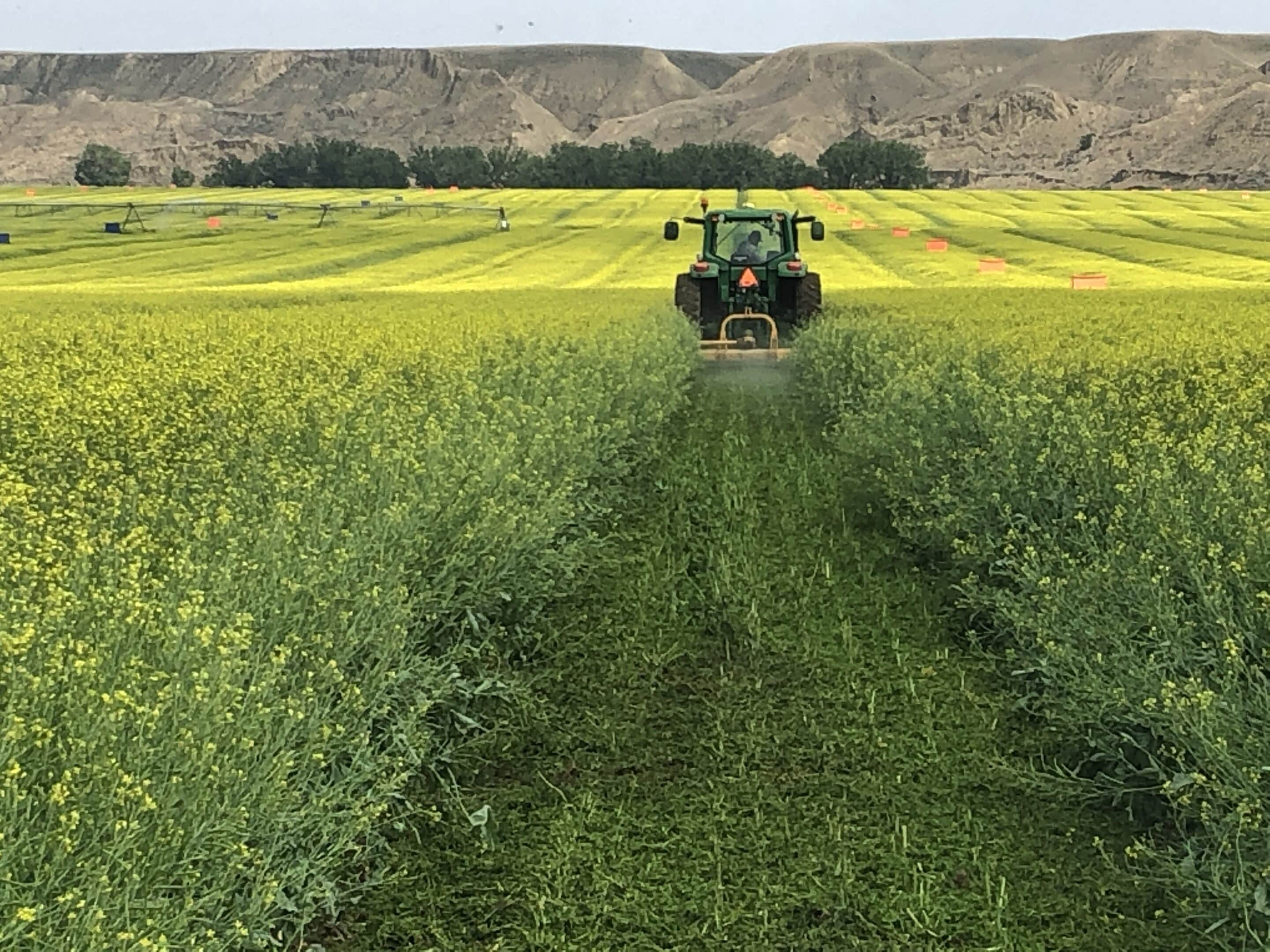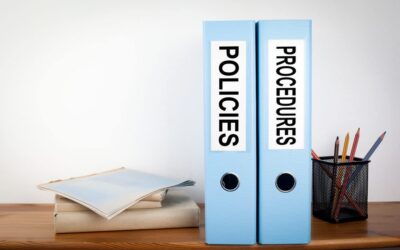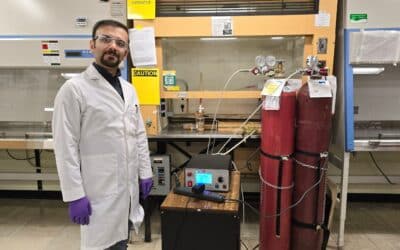Will Van Roessel is always up for trying out a new crop as a seed grower.
Will Van Roessel has always been a farmer that looks for opportunities. When he started farming on his own in 1980, he didn’t have a lot of land and needed a way to make the most money he could off the land he had.
“There was a pretty good market here for soft white spring wheat production on irrigation. And so, I usually just sewed one or two seed fields a year until we started into hybrid canola in the early ‘90s. And then we found that it was probably just as easy to have all our acres in seed production,” Van Roessel explains in a phone interview.
Since then, the Bow Island, Alta.-based seed grower has become recognized in southern Alberta for being willing to try out growing most any new seed crop. He’s experimented with growing seeds such as hybrid sunflowers and hemp.
“(Will’s) been really instrumental in introducing (hemp) to southern Alberta, to the irrigation district, between Bow Island and Lethbridge,” Kevin Friesen says in a phone interview. “He provides a lot of advice for growers who are trying out the varieties he is growing.”
Van Roessel is known for hosting field days at his farm during the growing season and being willing to answer any questions his customers (or fellow seed growers) may have.
Growing Seed
For Van Roessel, seed growing started out as a way to make his farm more profitable. When he started farming, he didn’t have a lot of land, he was renting equipment, and he needed a way to make the land he was farming more profitable, which is where the idea for seed growing came from.
“At that time, I didn’t have much land. I was just starting out and it looked like a way to get a higher value crop on small acres of land,” he says.
Over the years the amount of seed production on Van Roessel’s farm, Specialty Seeds Ltd., grew to the point where it was all they were growing with no cash crops left in the rotation. Today, Van Roessel farms 1,500 acres of irrigated land planting hybrid canola, spring wheat, durum, yellow peas, hemp, and hybrid rye seed.
Van Roessel’s wife Jean works with him on the farm, and his daughters, Jessie Lysholm, Rowan Van Roessel, and Naomi Van Roessel, assist during the growing season when they’re not in high school or university. The daughters mainly help with rouging as they’re not around during seeding and only there for part of the harvest due to their school schedules.
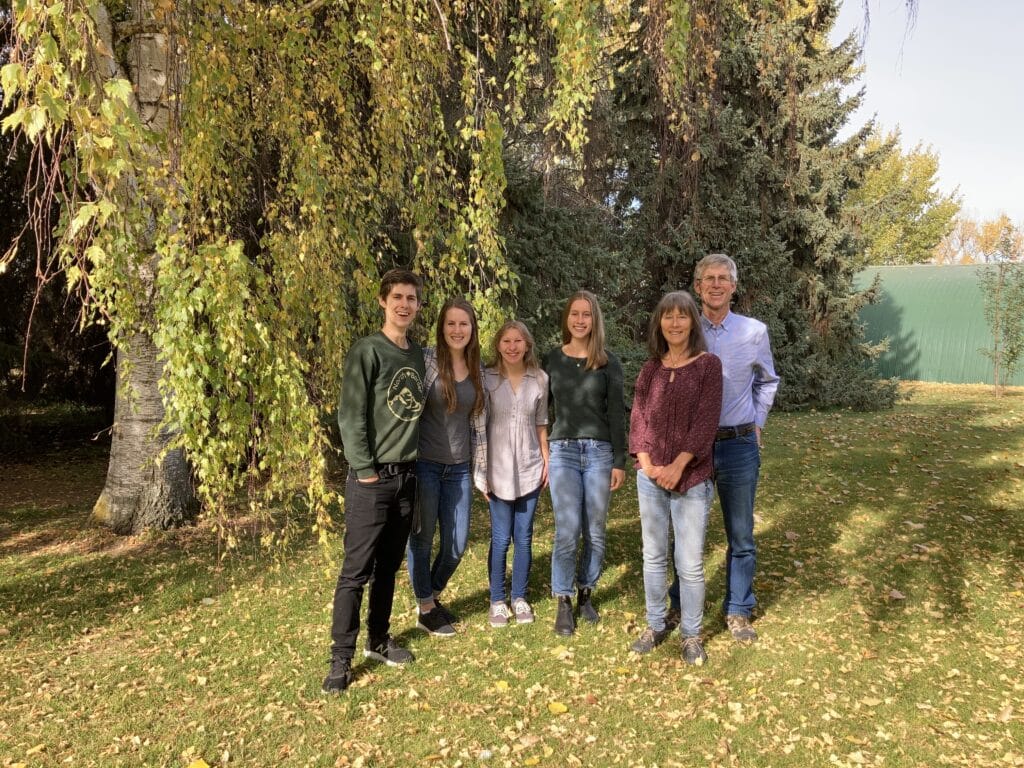
(L-R) Brandon Lysholm, Jessie Lysholm, Naomi Van Roessel, Rowan Van Roessel, Jean Van Roessel and Will Van Roessel. Photo: Will Van Roessel
Over the years, Van Roessel has always been up for trying out new crops and seeds, whether they’re new to him or to his region.
“I’m always interested in trying something new. We were the first ones in Alberta to do any hybrid canola seed production on our own. We actually started with an Ag Canada variety that was distributed by SeCan. It’s the only Ag Canada hybrid canola variety that was ever registered,” he explains.
The experimentation has paid off with Van Roessel having been able to expand his crop rotation enough to only have seed production with no cash crops.
Seed Growing Experimentation
Not all Van Roessel’s seed growing experiments have worked out. He tried growing barley once and discovered he didn’t get a yield advantage growing it with irrigation compared to non-irrigated land. He also tried to grow hybrid sunflower seeds the past two years, but the jury is still out on if he’ll try again.
“We would have had a successful crop I think both years had there not been a problem with the seed that we planted. That was kind of an interesting learning experience to be involved in and there’s a good chance we might do it again in a year or two with some new hybrids,” he explains.
Van Roessel and his daughters were surprised by how many wild sunflowers have appeared in neighbours’ fields, coolies and pitch banks during their foray into sunflower seed production. Every wild sunflower had to be removed for their hybrid sunflower fields to pass inspection with the Canadian Seed Growers’ Association.
One crop Van Roessel has seen success with and has added to his crop rotation permanently is hemp. Initially he wasn’t even interested in growing hemp. He had reached out to Friesen, a pedigreed seed grower and president of K.D. Friesen Farm Corporation in Laird, Sask., to see if he could help him source some red lentils to grow.
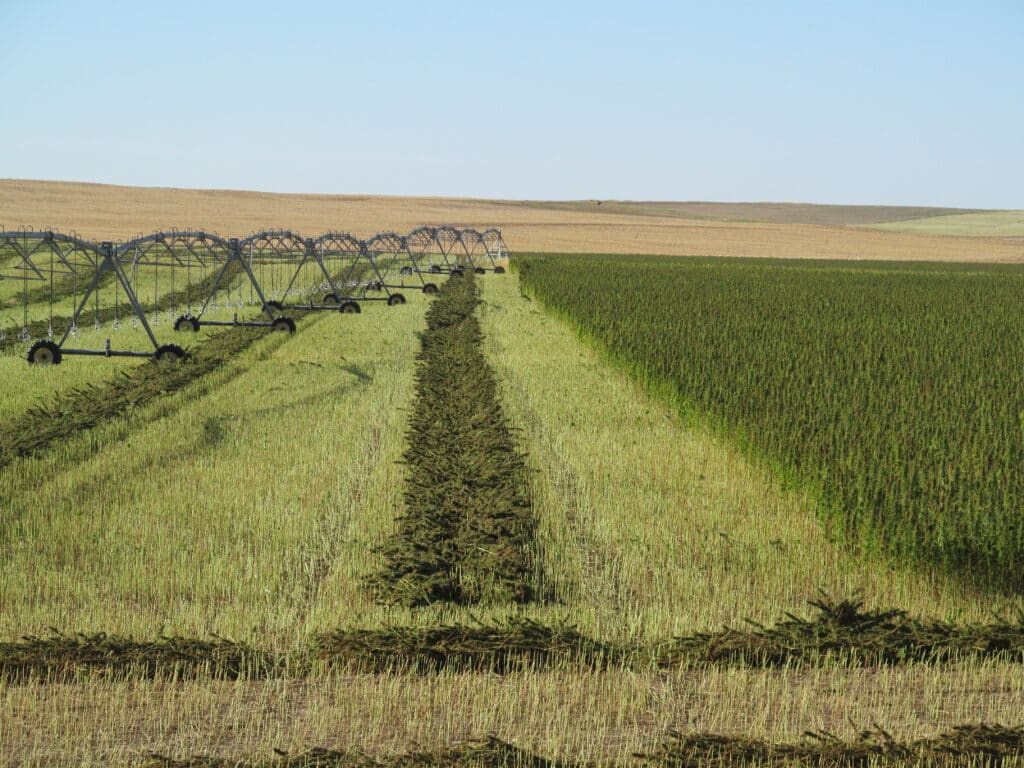
A swathed field of irrigated hemp seed on Specialty Seeds Ltd. in Bow Island, Alta. Photo: Will Van Roessel
“It was after three conversations, I actually convinced him to start growing some hemp seed. I had had some friends of mine who live in the Gem and Rosemary areas in Alberta grow seed… but it never been grown in the Bow Island area. And so, he was the first guy to grow hemp there, and now there’s probably 20,000 acres a year there,” Friesen explains. Friesen is currently the Canadian sales rep for International Hemp.
At first Van Roessel grew a small field of hemp seed, after finding he liked it, he started increasing acres, even growing it for commercial production at one time. The varieties he has grown yield well in his area, and as he grows hemp under irrigation, it has given him an edge on seed production with higher yields.
“Volunteer hemp isn’t really a problem in subsequent crops. So that makes rotations easier, we don’t have to worry about controlling our volunteer hemp in between years,” he adds.
He has found the biggest hurdle with hemp seed production is harvest. Van Roessel explains he has to adjust his equipment more for it compared to when harvesting other crops.
“Hemp’s a crop that requires someone who’s really diligent and pays attention to details. And, and I just got a sense that (Will) was someone who would do a really good job, and that turned out to be the case,” Friesen says.
For Van Roessel he plans to keep on growing hemp and his other seed crops, while being open to trying out new crops on his farm moving forward.
Header photo — An irrigated hybrid canola seed field on Specialty Seeds Ltd. in Bow Island, Alta. Photo: Will Van Roessel
Related Articles
Witdouck Farms is Built on a Career of Opportunities
4/19: A Red-Letter Day for Canadian Hemp Varieties
Better Seed Genetics Push Straight Cutting Canola Trend Forward


